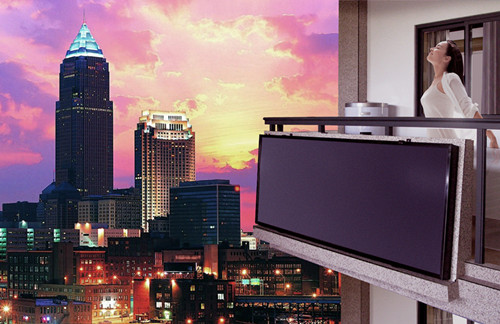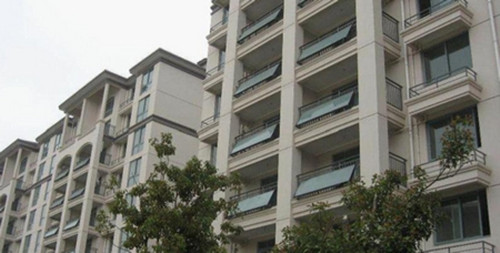Zhejiang Shentai Solar Energy Company has long been at the forefront of developing split solar energy solutions, particularly for high-rise buildings. With its groundbreaking "micro-cycle" balcony solar technology, the company has distinguished itself in a competitive market and reached new heights in 2012.

*The end of the traditional balcony solar "defect" era*
Over the past few years, the solar industry has experienced rapid growth, driven by rising demand for hot water in urban areas. This expansion has pushed manufacturers to innovate continuously. Shentai Solar, with its focus on split solar water heaters, has invested heavily in research and development. After seven years of refinement, the company partnered with Germany's HOVEN to launch the third-generation "micro-circulation" balcony solar water heater, tailored specifically for China's high-rise residential buildings.
Industry experts praise the "micro-cycle" system for its ability to meet the unique needs of high-rise buildings, ensuring both efficiency and seamless integration with modern architecture. The product’s core technological advantages have earned it strong market recognition.
The "micro-cycle" system uses a low-power DC inverter pump, consuming only 15W, which adjusts based on water temperature. It features a mosaic controller panel and an integrated micro-circulation pump. This design solves common issues like limited heat exchange area, low efficiency, and corrosion caused by traditional systems. A full copper heat exchanger boosts efficiency by up to 30% compared to conventional natural circulation systems. The water tank is made from imported SUS 316L stainless steel, offering excellent corrosion resistance and pressure tolerance.
Additionally, the "micro-cycle" system eliminates the need for wall mounting, making installation more flexible and space-efficient. The water tank can be placed in hidden corners, and the circulation pipes can be embedded or concealed. Compared to forced circulation models, it requires fewer components, saving space and simplifying installation.
The system also features a direct tank-injection structure, allowing users to easily add or replace media without disassembling the pipeline. A built-in media capacity detection meter enables real-time monitoring, making maintenance simple and efficient—greatly improving after-sales service.

*God too "micro-cycle" balcony solar energy leading the way in high-rise residential heating*
As renewable energy becomes increasingly important in building design, solar energy is gaining attention from developers and architects alike. In China, where land is scarce, high-rise buildings are becoming the norm. Policies mandating solar installations have created both opportunities and challenges for the industry.
While balcony-type solar water heaters offer better aesthetics than traditional models, they still face technical limitations when integrated into high-rise buildings. To address this, Shentai Solar highlights four key factors for successful implementation:
1. **Product Performance**: High thermal efficiency, safety, and ease of maintenance are essential.
2. **Aesthetic Design**: Balcony solar systems must fit architectural standards and save space.
3. **Integrated Planning**: Solar systems should be part of the design process, not an afterthought.
4. **Ease of Maintenance**: Systems must be durable, easy to manage, and cost-effective for property managers.
Experts believe that while government subsidies help promote clean energy, long-term success depends on technological upgrades and standardized regulations. By improving efficiency, reducing costs, and fostering collaboration between developers, manufacturers, and designers, the solar industry can continue to grow and become a key part of everyday life.
Cryo Tube
Yongyue cryo vials are made of medical grade polypropylene (PP) and have no endotoxin. They are disposable laboratory consumables specially used for storing biological samples.
The anti-slip texture of the cap and body is easy to screw cap.
The tube cap has an O-ring built-in gasket to prevent liquid leakage.
The cryo tube is suitable for ultra-low temperature refrigerators, and the tolerance temperature is -86~121 °C, and it can be repeatedly frozen and thawed.
In the gaseous state of liquid nitrogen, it can withstand low temperature to -167 ℃.
According to different requirements, there are ordinary grade and PCR grade. PCR grade products are free of DNase, RNase, endotoxin and foreign DNA. Sterilized by gamma irradiation, sterile.
Cryo Vials,Cryovial 2ml,Cryotube 1.8 ml,Cryogenic Vials,0.5 ml Cryogenic Vials
Yong Yue Medical Technology(Kunshan) Co.,Ltd , https://www.yonyue.com